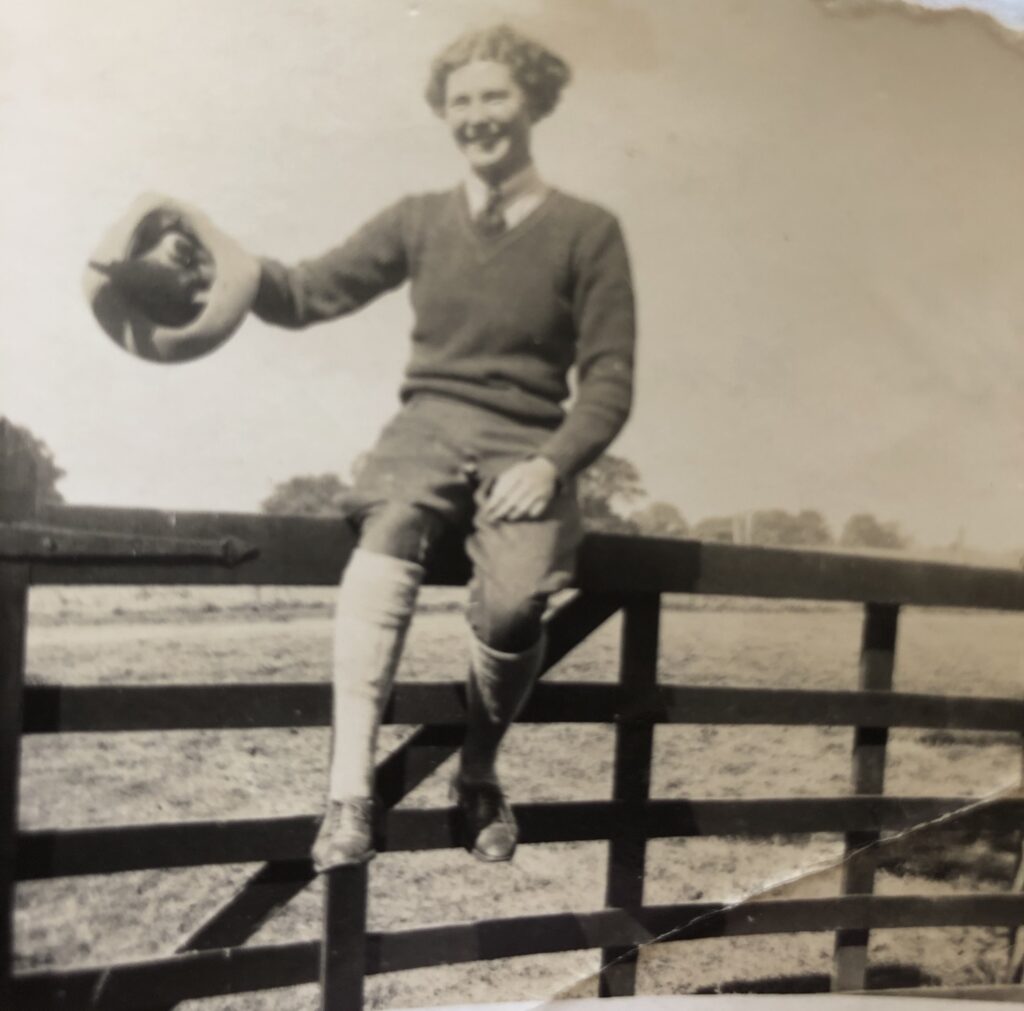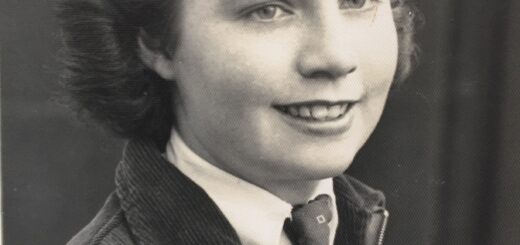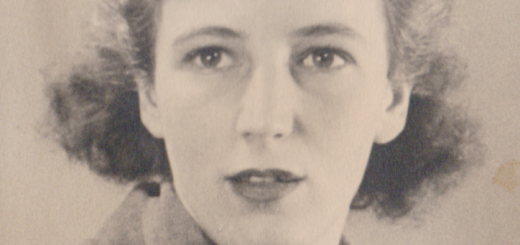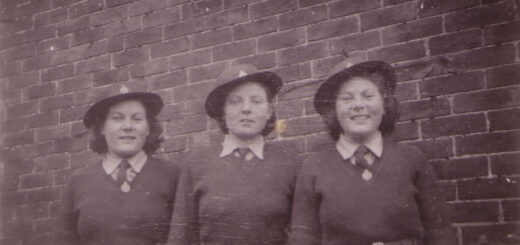Jean Birtles (née Bannister)
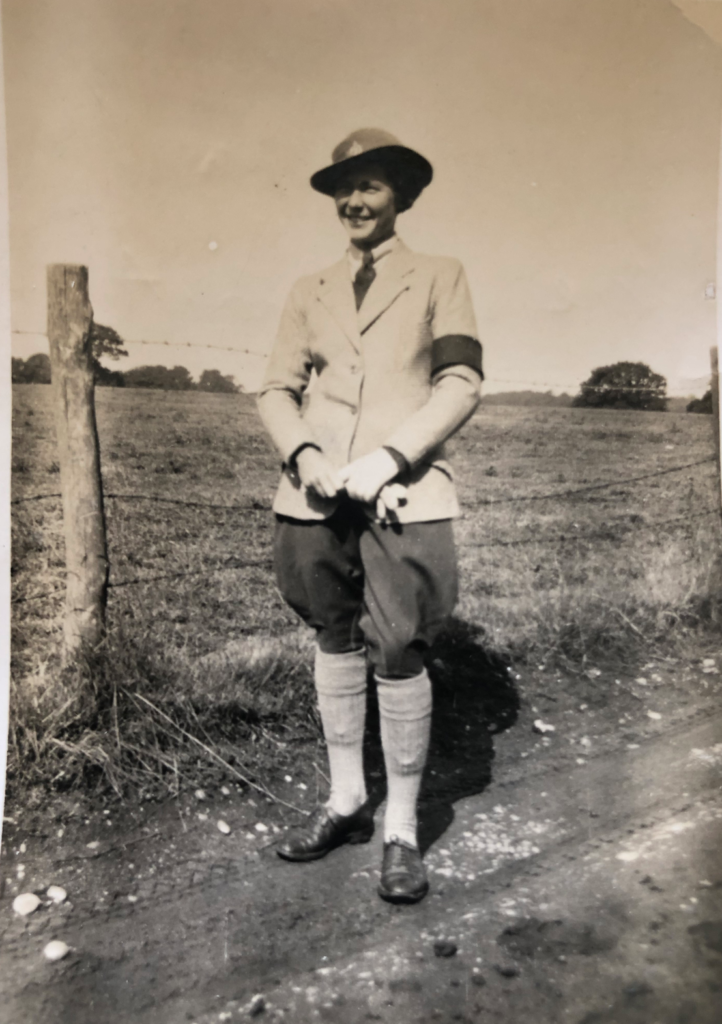
General Information
First Name(s): Jean Leslie
Unmarried Surname: Bannister
Married Surname: Birtles
Date of Birth: 18th July 1920
Place of Birth: Hornchurch, Essex
Date Joined WLA: 1940
Date Left WLA: 1943
Employment
Pre-Work Training: I was interviewed by 3 women one of whom was the dentist’s wife and I knew her. There was not training.
Employed by?: Mr AE Carter who lived at Great Baddon which was about 8 miles away from the farm I worked on. He had a number of farms and was also in catering. He was a very nice man and he made my wedding cake after the war with fruit my brother sent from Hong Kong as rationing was still on. I lived on the farm and shared a house with the cowman and his wife.
Dates with employer?: Spring 1940-1943
County: Essex
Farm Name: Hall Farm, West Manningford near Chelmsford
Other women:
I can only remember a couple of names and most girls came and went very quickly as they found the work very hard.
Christine – a white blonde girl that got terribly burnt. I had a pet jackdaw who came to the farm with me. He used to sit on her head and peck at her burnt pink parting!
Joan Mares
Hazel Lambert
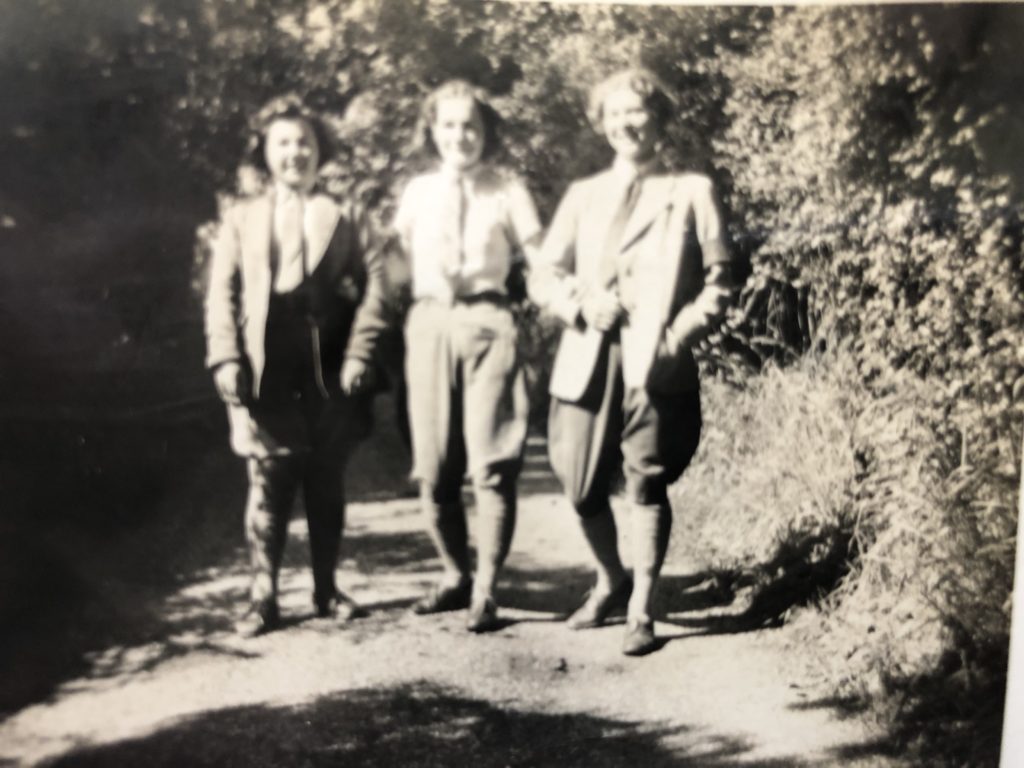
Life After War
Did you return back to pre-war occupation? I was married in 1949 and then started a family. I had rather a menagerie of animals by this stage. My husband to be, Tom, said “One dog and one goat only!”
What was occupation after the war? Housewife
Did you stay on the land? No but we bought a small holding and we kept animals!
How did work in the WLA / WTC effect your life?
I had always wanted to work with animals, before the war I volunteered with a vet. I left the Land Army and I wanted to continue keeping animals. I had all sorts of animals. As a child we lived in the country along with 3 labradors so I grew up with a love of animals, fields and open air. I was allowed to keep many pets including white mice, tortoises, a small turtle and rabbits. I loved my pets and was taught to look after them well. When we were married I kept dogs, goats, etc
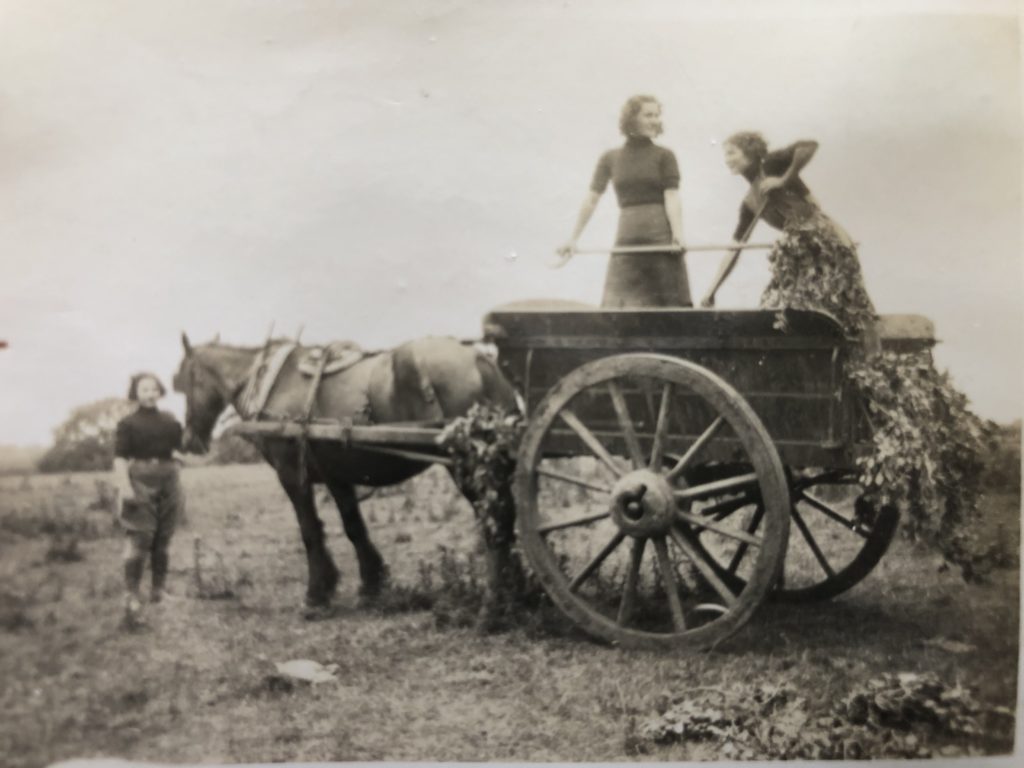
Further Information
Previous occupation: I volunteered with a local vet
Reasons for joining
I wanted to apply to the ATS to calculate gun ranges as I was good at maths but my parents did not approve of it as a service for women to join. My father felt I was better at home helping my mother but I wanted to do something for the war effort.
My parents said I should join the Women’s Land Army like my aunt had done in the First World War. My parents felt this was more appropriate, I think they had little idea of the hard, physical work that would be involved.
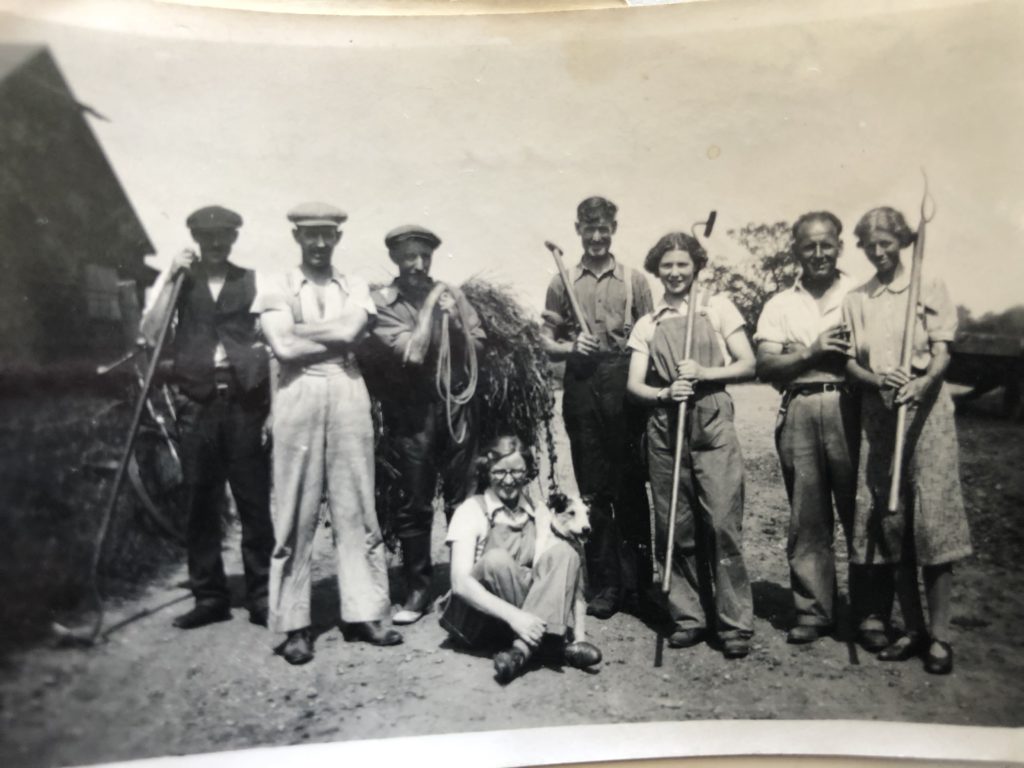
Type of work undertaken
5am Milking the cows
8am Breakfast (about 30mins)
8.30am Clean out the cow sheds and wash then sterilize the milking equipment
12.30 Lunch (about 45 mins)
1.30pm Get the cows in from the fields, scrub them down and wash the stone floor
5.30pm home for tea (about 30mins)
In the summer we went back out to the fields and harvest until 9pm
I was paid £2/4 shillings a week. In the summer we could earn up to £4 a week with overtime.
I worked 6 ½ days a week with 1 day off a month
Jobs included milking, clearing out, sterilizing, herding the cows in from the fields, cleaning and grooming the cows, hoeing the fields, harvesting.
Work liked most and least
I enjoyed it all but especially the animals. I enjoyed playing my part in the war effort.
Any accidents or injuries?
As part of some sort of initiation ceremony the workers made me milk a cow that kicked. She got me square in the face. The cowman’s wife cleaned me up and I went up in the men’s estimations when I turned up the next day for work with a very swollen face and eyes.
I can’t use my arms terribly well now because of the damage I did to my shoulders – the farm had no milk pipeline so I had to carry pales of milk up to the cooler. I damaged my joints doing this especially my right shoulder. My mother thought I had arthritis. I had to take on lighter work. After 6 months I hadn’t heard anything back from the Land Army so I answered an ad to look after 2 Jersey cows for a London couple who had a country bolt hole. I worked here until the end of the war (Blackboys, Uckfield Sussex).
Best and worst memories of time
There was no running water and we had a tin bath in front of the kitchen range. We had to bring water from the cow shed. In the end we moved the bath to the cow shed!
There was a lot of bombing nearby in Chelsmford (The Marconi Company was based there and was the intended target). One day in 1942, at a farm a mile away from us, a German plane machine gunned the farmers and the cows at 5am as they were being taken in for milking. Some of the cows were killed. The pilot then did a victory roll and flew over our farm.
Another time a German Parachutist landed on the roof of our nearby farm. He asked for a cigarette and a cup of tea before being taken away by the police!
I had my 21st Birthday on the farm and they had chalked 21 on everything! Each step of the wooden stairs, even my scrubbing brushes and milking stool!
We had to keep up the milk quotas and Mr Carter bought two Friesians and a Guernsey cow to make up the cream content of the milk. The milk cups on the machines didn’t fit as their teats were too big so we had to use two machines! The Guernsey cow used to like being milked later than the others. She would stay asleep in the field and make her own way in! Sometimes she would be late and we used to joke that “her alarm hadn’t gone off yet!”
The vicar used to come every 3 weeks to ensure our records were being kept up to date. We used to have to measure the milk in the afternoons and we had quotas to meet.
My mother moved down when the bombing got so bad where she lived and she would cook lunch for us all. My father was evacuated to Peterborough and would visit by train. I would walk down the lane to meet him from the bus with my pet jackdaw who used to follow me everywhere, 2 young goats and a 6 month old bull that they were try to raise to be calm and handled.
My mother was left a parrot by someone that she brought down with her too. The Home Guard were practicing manoeuvres in the lane outside and the parrot was on the table in the front garden. The Home Guard had not got their guns so they all had brooms etc to practice with. They were taking cover in the ditch and the parrot kept mimicking the sergeant’s whistle and caused chaos!
Reactions of local people towards WLA / WTC
The farmer workers were very suspicious of girls working on the farms. Girls were just being allocated to farms and the workers were not generally keen – as mentioned above they put me through so sort of initiation and I was kicked in the face by one of the cows.
Treatment by farmers or market gardeners
Mr Carter the farmer was a very kind man.
Reasons for leaving
After 3 years I had to leave due to poor health.
Contributor Details
Name: Jean Birtles with the help of her granddaughter Elizabeth
